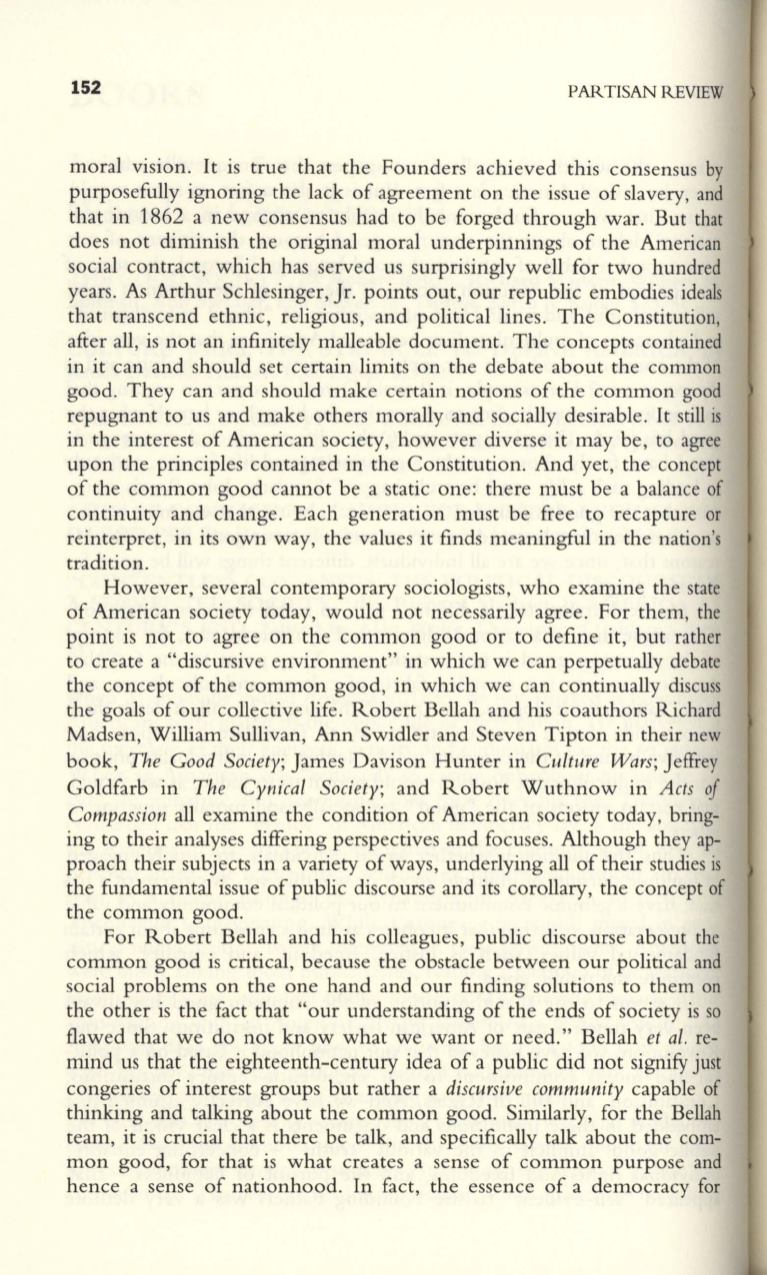
152
PARTISAN REVIEW
moral VISIOn. It is true that the Founders achieved this consensus by
purposefully ignoring the lack of agreement on the issue of slavery, and
that in 1862 a new consensus had to be forged through war. But that
does not diminish the original moral underpinnings of the American
social contract, which has served us surprisingly well for two hundred
years. As Arthur Schlesinger, Jr. points out, our republic embodies ideals
that transcend ethnic, religious, and political lines. The Constitution,
after all, is not an infinitely malleable document. The concepts contained
in it can and should set certain limits on the debate about the common
good. They can and should make certain notions of the common good
repugnant to us and make others morally and socially desirable. It still is
in the interest of American society, however diverse it may be, to agree
upon the principles contained in the Constitution. And yet, the concept
of the common good cannot be a static one: there must be a balance of
continuity and change . Each generation must be free to recapture or
reinterpret, in its own way, the values it finds meaningful in the nation's
tradition.
However, several contemporary sociologists, who examine the state
of American society today, would not necessarily agree. For them, the
point is not to agree on the common good or to define it, but rather
to create a "discursive environment" in which we can perpetually debate
the concept of the common good, in which we can continually discuss
the goals of our collective life. Robert Bellah and his coauthors Richard
Madsen, William Sullivan, Ann Swidler and Steven Tipton in their new
book,
The Good Society;
James Davison Hunter in
Culture Wars;
Jeffrey
Goldfarb in
The Cynical Society;
and Robert Wuthnow in
Acts of
Compassion
all examine the condition of American society today, bring–
ing to their analyses differing perspectives and focuses. Although they ap–
proach their subjects in a variety of ways, underlying all of their studies is
the fundamental issue of public discourse and its corollary, the concept of
the common good.
For Robert Bellah and his colleagues, public discourse about the
common good is critical, because the obstacle between our political and
social problems on the one hand and our finding solutions to them on
the other is the fact that "our understanding of the ends of society is so
flawed that we do not know what we want or need." Bellah
et al.
re–
mind us that the eighteenth- century idea of a public did not signify just
congeries of interest groups but rather a
discursive community
capable of
thinking and talking about the common good. Similarly, for the Bellah
team, it is crucial that there be talk, and specifically talk about the com–
mon good, for that is what creates a sense of common purpose and
hence a sense of nationhood. In fact, the essence of a democracy for


